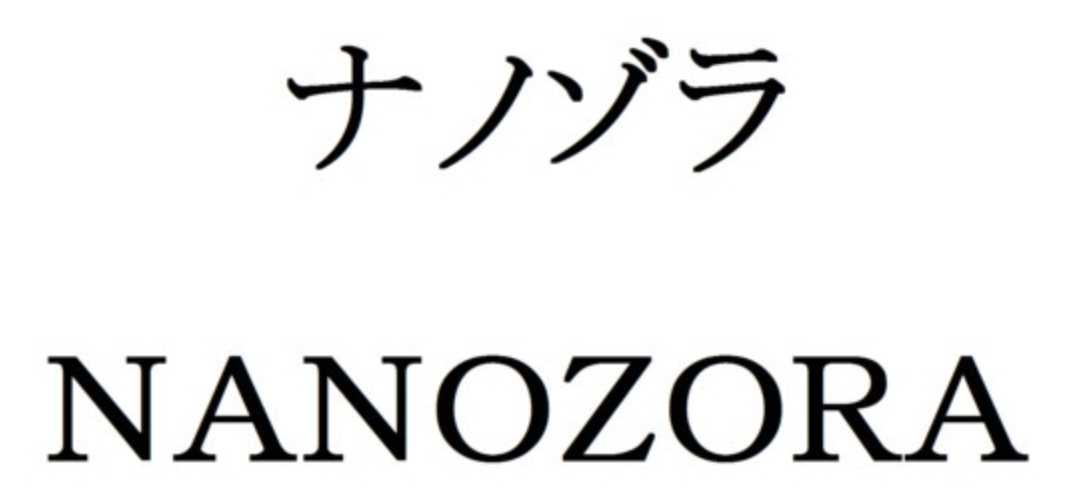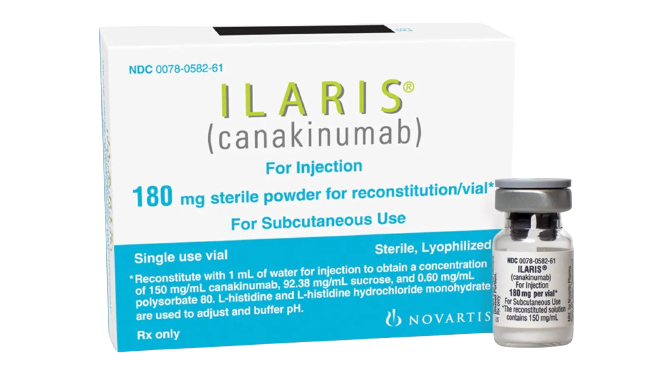Nanozora (ozoralizumab) vs Ilaris (canakinumab)
Nanozora (ozoralizumab) vs Ilaris (canakinumab)
Nanozora (ozoralizumab) is an investigational humanized Nanobody that targets tumor necrosis factor (TNF) and is being explored for the treatment of various inflammatory diseases, such as rheumatoid arthritis. Ilaris (canakinumab) is a human monoclonal antibody that targets interleukin-1 beta (IL-1β) and is approved for use in several conditions, including Cryopyrin-Associated Periodic Syndromes (CAPS), Systemic Juvenile Idiopathic Arthritis (SJIA), and more. When deciding between the two, it is important to consider the specific condition being treated, as Nanozora's effectiveness and approval status for a particular indication may differ from Ilaris, which has established efficacy and safety profiles for its approved indications.
Difference between Nanozora and Ilaris
| Metric | Nanozora (ozoralizumab) | Ilaris (canakinumab) |
|---|---|---|
| Generic name | Ozoralizumab | Canakinumab |
| Indications | Rheumatoid arthritis | Cryopyrin-associated periodic syndromes, Systemic juvenile idiopathic arthritis, Adult-onset Still's disease, Gouty arthritis |
| Mechanism of action | Anti-TNF nanobody | Anti-IL-1β monoclonal antibody |
| Brand names | Not widely branded | Ilaris |
| Administrative route | Subcutaneous injection | Subcutaneous injection |
| Side effects | Infections, injection site reactions | Infections, injection site reactions, headache, vertigo |
| Contraindications | Active infections, hypersensitivity to active substance | Active infections, hypersensitivity to active substance |
| Drug class | Immunosuppressive agent, Anti-TNF agent | Immunosuppressive agent, Anti-IL-1 agent |
| Manufacturer | Ablynx (a Sanofi company) | Novartis Pharmaceuticals |
Efficacy
Nanozora (Ozoralizumab) in Rheumatoid Arthritis
Ozoralizumab, known under the trade name Nanozora, is an investigational monoclonal antibody being studied for its potential use in the treatment of rheumatoid arthritis (RA). It targets and neutralizes tumor necrosis factor-alpha (TNF-alpha), a cytokine that plays a key role in the inflammatory process of RA. Clinical trials have shown that ozoralizumab can significantly reduce the signs and symptoms of RA in patients who have had an inadequate response to previous disease-modifying antirheumatic drugs (DMARDs). The efficacy of Nanozora has been demonstrated through improvements in joint swelling, pain, and physical function, as well as through the inhibition of the progression of structural joint damage.
However, as of the last update, Nanozora has not been approved by regulatory agencies such as the U.S. Food and Drug Administration (FDA) for the treatment of rheumatoid arthritis. The available data on the efficacy of Nanozora is based on phase II and III clinical trials. These studies have provided evidence that ozoralizumab may offer a new therapeutic option for patients with RA, especially for those who have not responded adequately to other treatments. Nevertheless, further research and final approvals are necessary before Nanozora can be widely recommended for clinical use in RA.
Ilaris (Canakinumab) in Rheumatoid Arthritis
Ilaris, with the generic name canakinumab, is a human monoclonal antibody targeting interleukin-1 beta (IL-1β), another pro-inflammatory cytokine implicated in the pathogenesis of rheumatoid arthritis. Canakinumab is primarily approved for the treatment of several rare auto-inflammatory syndromes, but its off-label use in RA has been a subject of clinical investigation. In studies involving patients with RA, Ilaris has been shown to reduce inflammation and alleviate symptoms such as joint pain and stiffness. Its efficacy in RA is attributed to the blockade of IL-1β, leading to a decrease in the inflammatory response that contributes to the disease's symptoms and progression.
Despite its potential, the use of Ilaris in rheumatoid arthritis is not as established as other treatments, such as TNF inhibitors or conventional DMARDs. The evidence supporting its efficacy in RA comes from a limited number of clinical trials, and it is not a standard treatment for this condition. Physicians may consider Ilaris as an off-label option for RA patients who have not responded to other therapies, but this decision is typically made on a case-by-case basis, weighing the potential benefits against the risks and considering the individual patient's medical history and condition.
Regulatory Agency Approvals
Nanozora
-
Pharmaceuticals and Medical Devices Agency (PMDA), Japan

Ilaris
-
European Medical Agency (EMA), European Union

-
Food and Drug Administration (FDA), USA

Access Nanozora or Ilaris today
If Nanozora or Ilaris are not approved or available in your country (e.g. due to supply issues), you can access them via Everyone.org.
How it works

Make an enquiry
Choose the medicine you want to buy, answer a couple of questions, and upload your prescription to speed things up. We’ll get back to you within 24 hours.


Make an enquiry
Choose the medicine you want to buy, answer a couple of questions, and upload your prescription to speed things up. We’ll get back to you within 24 hours.


Breeze through the paperwork
We'll guide you through the required documents for importing unapproved medicine, ensuring you have all the necessary information.


Get a personalized quote
We’ll prepare a quote for you, including medicine costs and any shipping, administrative, or import fees that may apply.


Receive your medicine
Accept the quote and we’ll handle the rest - sourcing and safely delivering your medicine.

Some text on this page has been automatically generated. Speak to your physician before you start a new treatment or medication.
Let's talk
If you have any questions, call us or send us a message through WhatsApp or email:
Contact us




